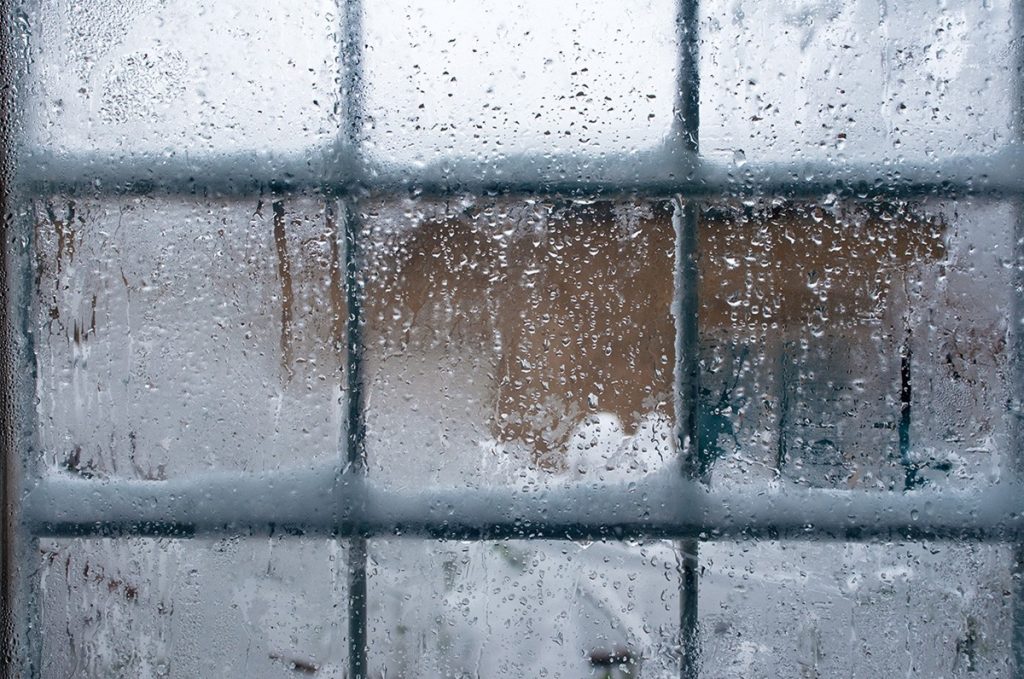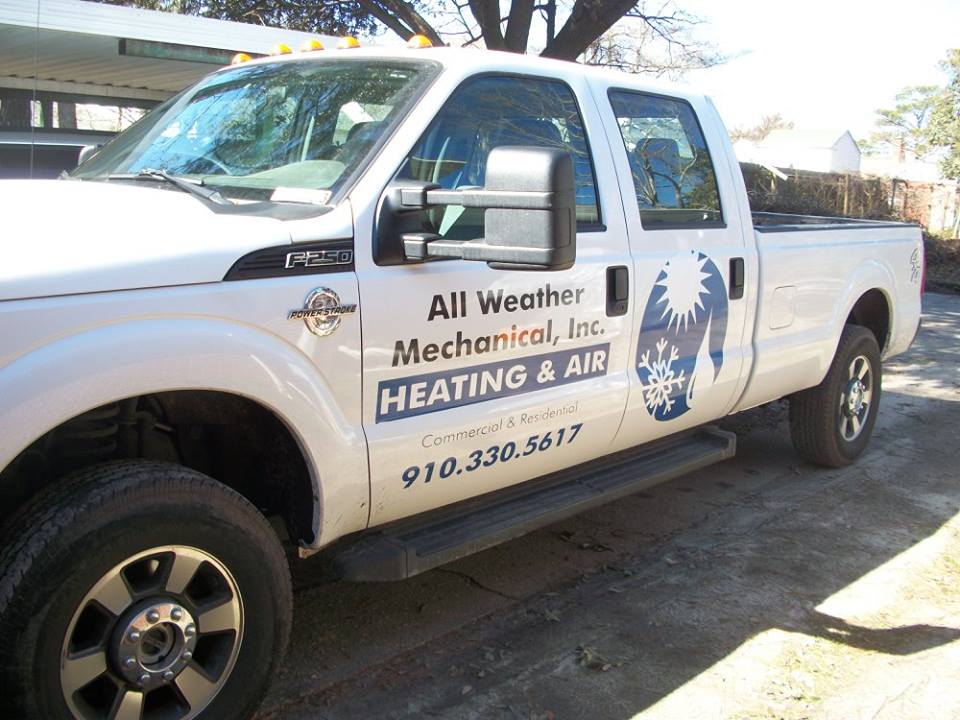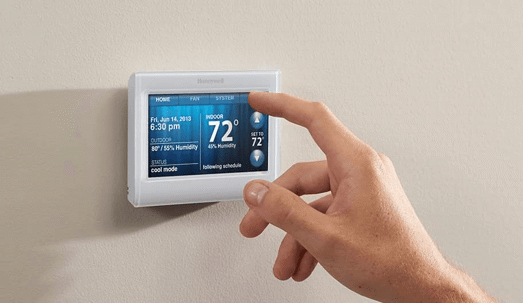The humidity levels in your home can have a significant impact on your health and comfort. Ideally, your home’s humidity shouldn’t be either too low or too high. Here’s what you should know about humidity and air quality and how All Weather Mechanical, Inc. can help you obtain heating and cooling comfort along with excellent indoor air quality.

HOW HUMIDITY IMPACTS AIR QUALITY
Humidity is a measurement of the amount of water vapor suspended in the air. Humid air feels “wetter” and warmer than air with less humidity, and a measurement of 100% humidity means that the air is holding as much water vapor as it can at its current temperature. If the air in your home is too dry or too humid, the quality of your air will naturally drop.
EFFECTS OF HIGH HUMIDITY
Air that is too humid can be uncomfortable. It can feel hot and sticky, and even good air flow often fails to make humid air tolerable for any length of time.
High humidity can also impact how many toxic chemicals are suspended in the air; these chemicals attach to the water molecules in the air, meaning that the more moisture there is in the air, the more chemicals there are too. It can also create a dustier environment, potentially triggering allergies along with other upper respiratory symptoms.
EFFECTS OF LOW HUMIDITY
Air that isn’t humid enough can also be uncomfortable. It can feel dry and irritating, causing itchy eyes, a runny nose, a sore throat, and a mild dry cough. It can also result in dry skin, chapped lips, dehydration, and an increase in respiratory illnesses.
Air without enough humidity also tends to promote the spread of viral and bacterial particles. This is generally why cold and flu season is in the winter, when the air indoors and out is much drier than in the spring and summer. It’s also why surgical suites typically have multiple humidifiers in a controlled climate environment.
HOW HUMID SHOULD MY HOME BE?
The U.S. Environmental Protection Agency (EPA) reports that to for ideal comfort and health, indoor air should fall between 30% and 50%, without exceeding 60% or dropping below 20%. You can measure the humidity in your home with a simple gauge that can be purchased at most hardware, home supply, and pet stores that sell reptile enclosures and accessories.
HOW TO INCREASE THE HUMIDITY IN YOUR HOME
Sometimes, North Carolina families need to supplement their home’s humidity in the winter to keep it around 50%. Especially when winters are cold and harsh, and there’s rarely enough moisture outdoors to keep the air in your home comfortable, especially when you have your heater running.
You can improve the overall moisture levels in your home’s air by purchasing a simple piece of equipment called a humidifier. These are available at superstores, home supply stores, and some hardware stores. A humidifier turns water into water vapor and releases it into the air, quickly increasing the relative humidity. Depending on how large your home is, you may need more than one humidifier to keep your home above 30% humidity.
TYPES OF HUMIDIFIERS
There are several different types of humidifiers you can choose from and which is right for your home depends on your unique needs.
1. STEAM VAPORIZERS
A steam vaporizer uses a heating element to heat water and convert it to steam, which is cooled and then released into the air. Steam vaporizers can also be used to treat upper respiratory symptoms like a stuffy nose and cough. A steam vaporizer can result in scalding if too close to the body, so it should be used carefully in homes with children or individuals who are at risk of injury.
2. COOL MIST HUMIDIFIERS
Cool mist humidifiers work differently than steam vaporizers to achieve the same goal. This type of humidifier uses a filter that acts as a wick to soak up water, which air is pushed through by a fan to pump water vapor into the surrounding air. Cool mist humidifiers are often better to use when you need consistent humidity support, since they don’t pose a risk of burns and tend to use less energy than steam vaporizers.
Either type of device can be used to increase the humidity in your home. Start with one humidifier in a central location and use a hygrometer, or humidity gauge, to ensure that you don’t tip the scale over 60% humidity. Add a second or third humidifier if your hygrometer shows that you still aren’t able to reach your desired level of humidity after a few days.
HOW TO DECREASE THE HUMIDITY IN YOUR HOME
Most months of the year, North Carolinians need humidity to be removed from their homes. In our hot and humid summers, it can be exceedingly difficult to keep humidity inside below 60%.
TYPES OF DEHUMIDIFIERS
1. Heat Pump Dehumidifier
These dehumidifiers need a fan, heat pump, and heat exchange coils to remove moisture from the air. Using a fan, air gets sent past the heat exchange coils, which are extremely cold. Moisture then condenses and collects.
2. Dehumidifying Ventilator
Like how it sounds, this humidifier works by using an exhaust fan to expel air outside. It uses a sensor and exhaust fan and is most often used in basements, attics, and crawlspaces.
3. Chemical Absorbent Dehumidifier
Also known as desiccant dehumidifiers, they consist of hydrophilic materials, such as silica gel. Many residential units contain single-use desiccant-type cartridges, gel, and powder.
4. Portable Dehumidifier
These dehumidifiers are easy to use and to move from room to room to reduce humidity or be purchased for all your rooms in need. The downside is having to empty the bucket of water once the dehumidifier is full. These units can be placed in crawlspaces where a hose can be attached without the need for dumping the water manually.

HOW ALL WEATHER MECHANICAL, INC. CAN HELP YOU IMPROVE YOUR HOME’S AIR QUALITY
At All Weather Mechanical, Inc., we are passionate about home comfort and that includes the quality of the air in your home. We can help you discover heating, cooling, and air quality solutions that are custom designed for your family’s unique needs and comfort goals.
We have been serving Jacksonville and surrounding areas for over 20 years, and our expertly trained HVAC technicians can assist you in getting the most heating and cooling for your money. Contact us today to learn more about how to improve your air quality and how we can help by calling (910) 554-3252.
The post HUMIDITY & AIR QUALITY IN YOUR HOME: WHAT YOU NEED TO KNOW appeared first on All Weather Mechanical Inc..

